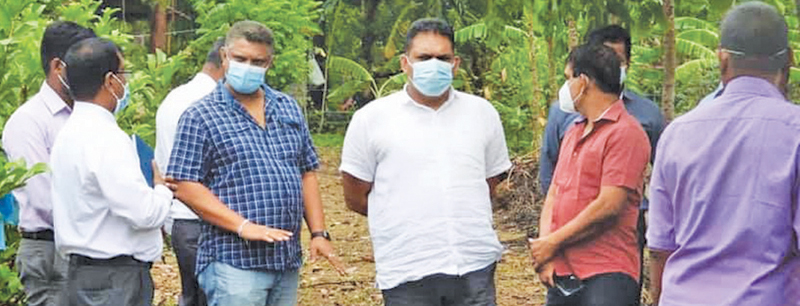Plantation State Minister Kanaka Herath said that rubber will be grown outside the areas where it is traditionally grown.
The State Minister was inspecting several model rubber plantations in Thalawa in the Anuradhapura District and Kandakadu in the Polonnaruwa District recently.
The State Minister said that rubber grows well in certain non-traditional rubber areas. Some parts of the Moneragala and Ampara have now used for rubber growing. After evaluating these plantations, other lands outside the traditional rubber growing areas will be used for growing rubber, the State Minister said.
Rubber is widely grown in Kegalle, Kalutara and Ratnapura and therefore, they are known as Rubber Triangle. However, the number of rubber plantations in these areas is gradually decreasing since houses are built on them. Therefore, new areas have to be found to grow rubber, State Minister Herath said.
Rubber has been grown as a commercial crop in 9,000 hectares in the Moneragala District and 3,000 hectares in the Ampara District. Research on growing rubber in the Anuradhapura and Polonnaruwa Districts has been carried out to expand rubber plantations.
State Minister Herath said that instead of exporting rubber as a raw material, selling it in local and international markets as a value added product is more lucrative.
“Therefore, rubber related industries will be encouraged to strengthen rubber growers’ economy,” he said. Rubber Development Department Deputy Director Dr. Susantha Siriwardena said that growing rubber in areas such as Anuradhapura and Polonnaruwa has several benefits when compared to growing rubber in traditional areas. “Rubber plantations in arid regions get fungal infections. Since areas such as Anuradhapura and Polonnaruwa get less rainfall, tapping could be done year round and there is no need to use rain-guards,” he said.


